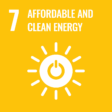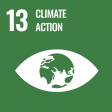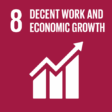Our Impact
iwell: Harmonizing clean energy
Sector: Low-Carbon Economy
iwell is a European pioneer in behind-the-meter smart energy storage solutions, allowing to lower energy bills and maximize on-site use of renewable energy, while improving grid stability, flexibility and resilience.

iwell provides modular, software-driven Battery Energy Storage Solutions (BESS) and an Energy Management System (EMS) for the commercial and industrial (C&I) sector. iwell’s intelligent systems allow its clients to store energy when it’s clean and cheap—such as solar power—and deploy it when demand and costs peak. The solution is particularly relevant in sectors where a stable power supply is mission-critical, such as logistics, transportation, and manufacturing.
Since inception, iwell has installed over 100 MWh of smart storage capacity across the Netherlands, Belgium and Germany, and is currently expanding in the UK.
>100MWh
of smart storage capacity installed
>350 projects
realized
35+
different assets under control (PV, EV, BMS, PCS, generators…)
Meridiam’s Green Impact Growth Fund led a €27m investment round in iwell, alongside InvestNL, Rabobank and iwell’s existing investors, to support the expansion of iwell’s smart battery storage solutions across Europe.
Why We Invested in iwell
To support the growth of a European leader in smart energy storage solutions for the C&I sector, and contribute actively to the decarbonation of the European energy mix while strengthening Europe’s energy independence and security:
- Strengthen its leadership position in behind-the-meter BESS and EMS solutions in the Netherlands
- Accelerate international development across European markets facing grid congestion and volatility in electricity prices
- Build a robust and resilient BESS supply chain
- Keep innovating and diversifying the software offering with advanced energy management and value creation features
iwell’s impact
iwell’s major contributions to the United Nations Sustainable Development Goals are mostly on:
- SDG 7 – Affordable and clean energy, by storing excess energy generated from renewable sources like solar and wind into BESS to reduce dependency on non-renewable energy sources;
- SDG 13 – Climate change, by enabling more efficient use of renewable energy, mitigating grid congestion, and therefore reduce reliance on fossil fuels;
- SDG 8 – Decent work and economic growth, by improving businesses’ economic productivity through lower energy bills and enhanced resource efficiency, including in energy-intensive industries.
>Learn more from the press release





